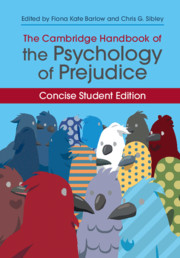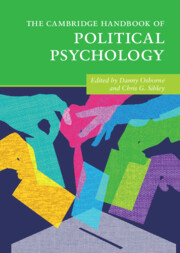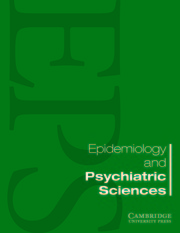The Cambridge Handbook of Implicit Bias and Racism
The concept of implicit bias – the idea that the unconscious mind might hold and use negative evaluations of social groups that cannot be documented via explicit measures of prejudice – is a hot topic in the social and behavioral sciences. It has also become a part of popular culture, while interventions to reduce implicit bias have been introduced in police forces, educational settings, and workplaces. Yet researchers still have much to understand about this phenomenon. Bringing together a diverse range of scholars to represent a broad spectrum of views, this handbook documents the current state of knowledge and proposes directions for future research in the field of implicit bias measurement. It is essential reading for those who wish to alleviate bias, discrimination, and inter-group conflict, including academics in psychology, sociology, political science, and economics, as well as government agencies, non-governmental organizations, corporations, judges, lawyers, and activists.
- Provides perspectives from a diverse range of scholars who study implicit bias
- Identifies gaps in the literature on implicit bias and opportunities for new research
- Presents new insights regarding ways to conceptualize implicit bias and interpret empirical evidence
Reviews & endorsements
‘Science aims to be self-critical. This Handbook presents an unprecedented number of alternative theories and analyses of implicit bias and racism. Proponents have a free hand to speak to the strengths of their approach; critics to call out weaknesses; putting readers in a unique position to form independent judgements of both the research and public presentations of the research.’ Paul Sniderman, Fairleigh S. Dickinson Jr. Professor, Stanford University
Product details
January 2025Paperback
9781108794435
818 pages
245 × 170 × 45 mm
1.352kg
Available
Table of Contents
- Foreword
- Introduction: taking stock of explicit and implicit prejudice
- 1. Report on the NSF conference on implicit bias
- Section 1. What is implicit bias and (how) can we measure it?:
- 2. Implicit bias: what is it?
- 3. Lessons from two decades of project implicit
- 4. Aversive racism and implicit bias
- 5. Stretching the limits of science: was the implicit-racism debate a 'bridge too far' for social psychology?
- Section 2. Predicting behavior and attitudes with measures of implicit bias:
- 6. The impact of implicit racial bias in racial health disparities: a practical problem with theoretical implications
- 7. Revisiting the measurement of group schemas in political science
- 8. Implicit bias and discrimination: evidence on causality
- 9. What is the unique contribution of implicit measures in predicting political choices?
- 10. Predicting biased behavior with implicit attitudes: results from a voting experiment and the 2008 Presidential election
- Section 3. Challenges of research on implicit Bias:
- 11. The rationality, interpretation and overselling of tests of implicit cognition
- 12. Listening to measurement error: lessons from the IAT
- 13. IAT Scores, racial gaps, and scientific gaps
- 14. Commentary
- Section 4. Improving measurement and theorizing about implicit bias:
- 15. Methodological issues in the study of implicit attitudes
- 16: The bias of crowds: rethinking implicit bias in social context
- 17. Latent state-trait analyses for process models of implicit measures
- 18. Increasing the validity of implicit measures: new solutions for assessment, conceptualization, and action explanation
- 19. A model of moderated convergence between explicit dispositions, implicit dispositions, and behavior
- 20: Complications in predicting intergroup behavior from implicit biases: one size does not fit all
- Section 5. How to change implicit bias?:
- 21. Changing implicit bias vs empowering people to address the personal dilemma of unintentional bias
- 22. How can we change implicit bias toward outgroups?
- Section 6. Explicit prejudice, alive and well?:
- 23. A survey researcher's response to the implicit revolution: listen to what people say
- 24. A history of the new racisms: symbolic racism, modern racism, and racial resentment
- 25. The relations among explicit prejudice measures: anti-black affect and perceptions of value violation as predictors of symbolic racism and attitudes toward racial policies
- 26. Complexities in the measurement of explicit racial attitudes
- 27. The continuing relevance of Whites' explicit bias—and reflections on the tools to measure it
- Section 7. The public's (mis)perception of implicit bias:
- 28. Public attitudes on implicit bias
- 29. The mass public's view of implicit bias, with implications for scientific communication in a politically polarized age.








